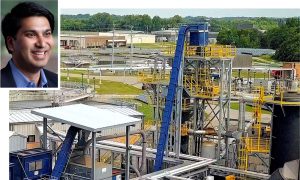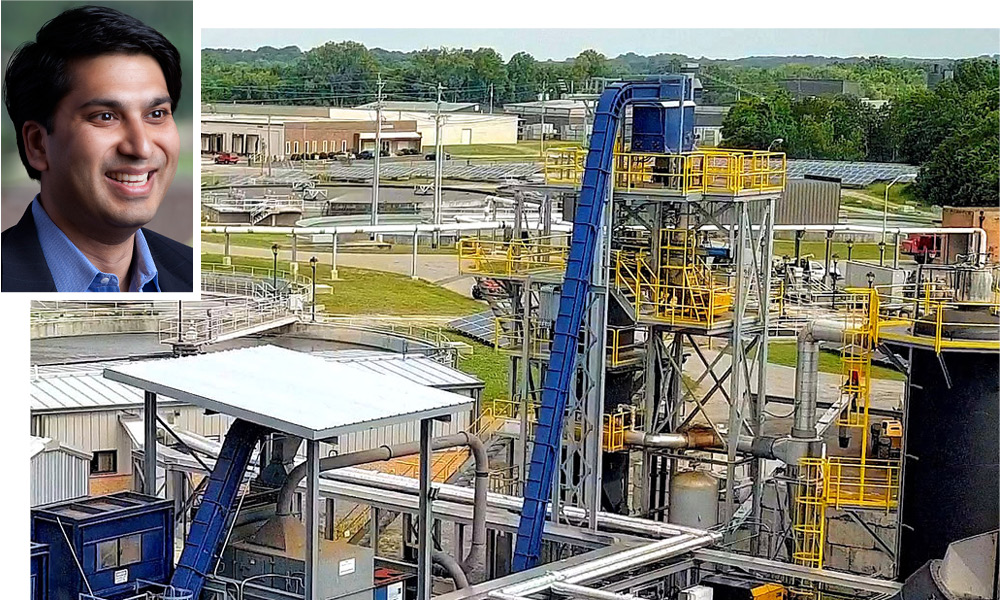Private equity firm focuses on catalytic project capital investments in the energy, water, food and waste industries.
Nora Goldstein
BioCycle first learned about Boston-based Spring Lane Capital when it committed $21.4 million in capital to Atlas Organics, Inc., a composting facility developer, for equity in future solid waste diversion projects and corporate support. Spring Lane Capital (SLC) is a private equity firm focused on “catalytic project capital investments for smaller scale distributed solutions in the energy, water, food and waste industries.”
“We identified a gap in the financing market where early stage companies have established commercially proven solutions using venture funding, and hit the point where they need to raise project capital to fund infrastructure and equipment,” Nikhil Garg, Co-Founder and General Partner at SLC told BioCycle. “This isn’t a stage that traditional venture investors are well-suited to fund, as the asset-intensive needs aren’t a good fit for their mandate.” SLC provides investments in the $10 million to $25 million range.
Garg and his two partners have been working together for 10 years across the resource innovation investing space. He cut his investment teeth in the clean energy sector with solar energy and photovoltaic companies, in some cases utilizing smaller scale distributed investments. “We focused on how to help these companies access project capital to scale up — and to further prove out their business model so larger investors will write bigger checks,” explains Garg. “Our financing enables them to establish enough proof points in the marketplace. Essentially, Spring Lane provides the stepping stone and know-how to help companies scale up over time. The goal is if we do that well, mainstream banks and infrastructure lenders will want to get involved.”

Inset: Nikhil Garg
Aries Clean Energy facility—one of Spring Lane Capital’s early investments.
BioCycle asked Garg a range of questions related to investing in the organics recycling sector.
BioCycle: Where does Spring Lane Capital see the biggest opportunities for investment in organics recycling infrastructure?
Garg: We evaluate opportunities across the organics management sector, from composting to anaerobic digestion to gasification. Our criteria are focused more on the business strategies versus the specific processing method. High on our list are smarter, more efficient organics management, and not overextending waste supply chains. The practicality of models that rely primarily on revenue from tipping fees, without assigning value to the end product such as compost and its quality, concerns us quite a bit. A company that isn’t creating a product with demand in the marketplace can’t sit on the piles indefinitely.
BioCycle: How much does end product value factor into SLC’s investment decisions?
Garg: We want to see value creation from all aspects of an operation. A significant component of landfill diversion is the closed loop nature of returning nutrients to soil or other beneficial uses. If that is not being achieved, organics recycling is just another way of handling a waste stream. That leads to longer term risk in our eyes.
More broadly, a big challenge in today’s impact investing and sustainability environment is that we don’t have very good ways of talking about the multifaceted beneficial impacts, such as reduced greenhouse gas emissions, healthier soils, fewer truck miles, etc. It would be great to have uniform metrics in order to see the benefits on an aggregated basis. While these metrics are still emerging, SLC sees the multifaceted impacts, and appreciates them quite a bit. It’s a big focus of our fund.
BioCycle: How does SLC define “small-scale”?
Garg: It’s relative. There is no black and white definition. From a capital cost perspective, we are looking at projects with an equity requirement for $10 million or below, which in our experience, once debt is factored in, can mean projects up to a build cost of $40 million plus. We also factor in the population being served and the scale of the city we are engaging with. That is often in the hundreds of thousands population range — cities like Durham, North Carolina, where we’re invested with Atlas Organics.
BioCycle: The three projects that Atlas Organics operates are all public-private partnerships. Is that type of relationship an asset in SLC’s view?
Garg: Atlas’ ability to work well with local decision makers is impressive. Those relationships take a while to set up on the front end, including building trust with the local officials. But having long-term contracts in place provides a certainty of feedstock supply, which is critical to investors like Spring Lane in order to unlock project capital.










